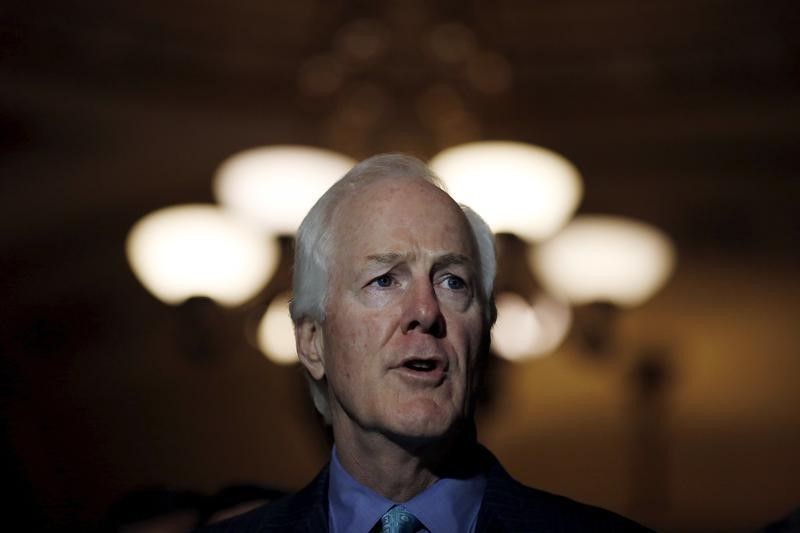By Richard Cowan and Susan Cornwell
WASHINGTON (Reuters) - Plans to avert a U.S. government shutdown began taking shape in the Senate on Tuesday, but it was still far from certain whether a dispute over funding for women's healthcare group Planned Parenthood could be overcome.
With only days remaining before an Oct. 1 deadline, Senate leaders said they were pursuing a stop-gap funding bill to extend the present federal budget for about 10 weeks beyond the Sept. 30 end of the fiscal year.
Known as a continuing resolution, or CR, this approach was gaining traction, said senior senators from both parties.
Meanwhile, the White House budget office began working with government agencies on shutdown plans.
"Prudent management requires that the government plan for the possibility of a lapse," a spokeswoman for the Office of Management and Budget said in a statement, emphasizing that the White House believes there was still time to prevent a shutdown.
The Senate's CR approach may fail if conservative Republicans in the House of Representatives stand by their threat to oppose any spending plan that preserves federal funding for Planned Parenthood, which is under attack over allegations that it improperly sells aborted fetal tissue.
President Barack Obama and congressional Democrats oppose defunding the group, which has said it has done nothing wrong and blasted the allegations as deceptive and unfair.
"Given the president's opposition and Democrats' opposition, at some point I anticipate there will be a clean CR," said Senator John Cornyn, the second-ranking Senate Republican.
Senate Democratic leader Harry Reid largely concurred saying, "We're going to move to a clean CR on Thursday."
There were no signs, however, that House Republicans would go along with this plan. Abortions are a small part of Planned Parenthood's services, making it a perennial target for anti-abortion forces among conservative Republicans.
Senate Majority Leader Mitch McConnell said the Senate would vote on Thursday on a CR keeping federal agencies funded through Dec. 11 and giving Congress time to work out a longer-term budget deal.
McConnell's measure would try to strip the portion of Planned Parenthood funding from discretionary programs. Democrats were expected to block that version of the bill.

Conservative Republicans have called for an end to the group's current funding of about $500 million a year, mostly from Medicaid healthcare reimbursements independent of annual spending bills. McConnell's bill would attack a much smaller portion, about $50 million.